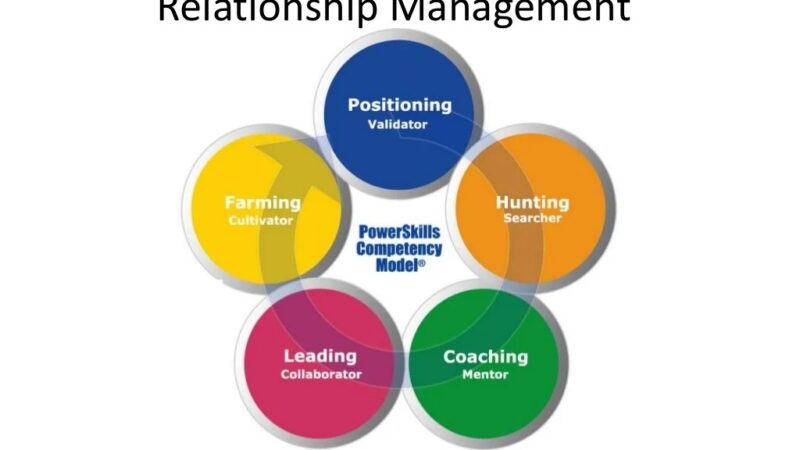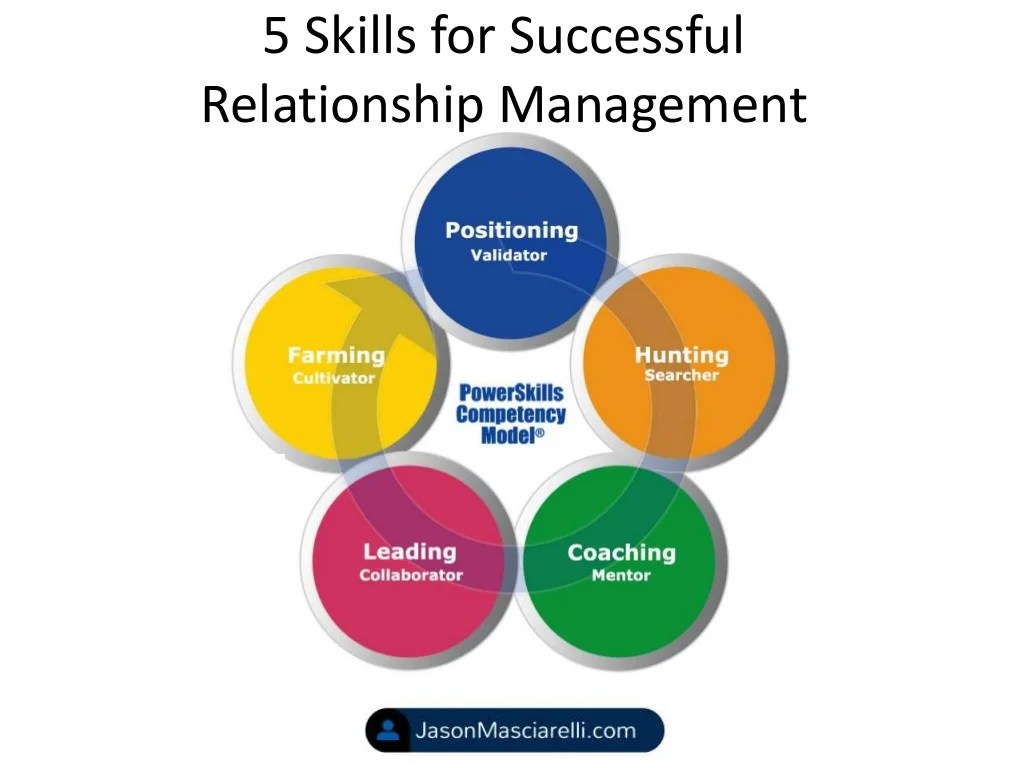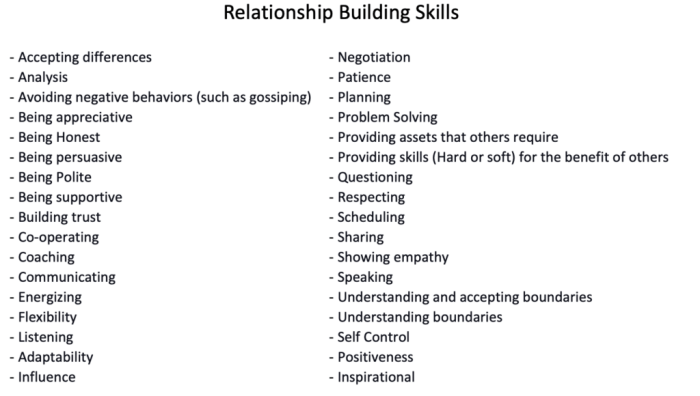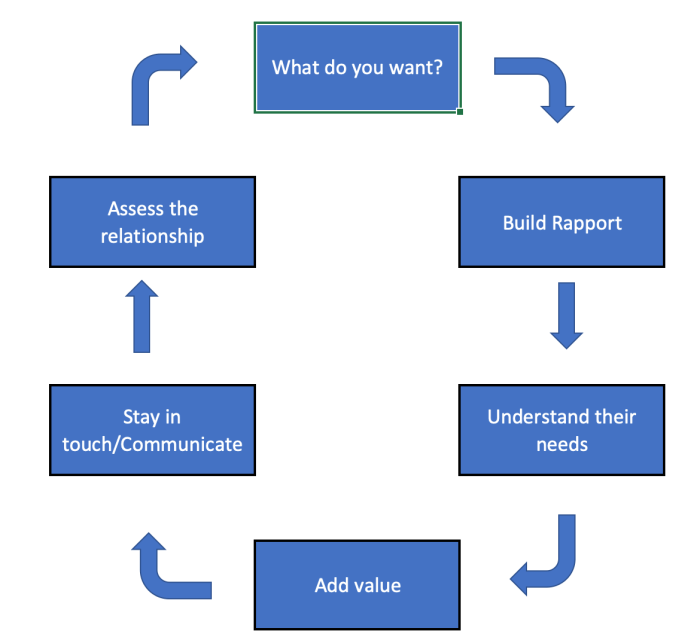Relationship Building Skills: Mastering the Art of Connection

Relationship-building skills are the cornerstone of success in all aspects of life. Whether you’re navigating the professional world, cultivating personal connections, or strengthening family bonds, the ability to build strong relationships is paramount. These skills are not innate; they are cultivated through conscious effort, strategic communication, and a genuine desire to connect with others.
From active listening and empathy to effective communication techniques and understanding nonverbal cues, relationship building involves a multifaceted approach. By mastering these skills, individuals can foster trust, create a sense of belonging, and achieve greater collaboration and innovation.
Importance of Relationship-Building Skills

In today’s interconnected world, strong relationships are essential for personal and professional success. Relationship-building skills are not just about being friendly or charming; they are about cultivating meaningful connections that foster trust, collaboration, and mutual understanding. These skills are invaluable in both our personal lives and in the workplace, where they contribute to a positive work environment and drive innovation.
Impact on Personal Success
Strong relationships play a vital role in our well-being and happiness. They provide us with a sense of belonging, support, and encouragement, which are crucial for navigating life’s challenges. When we have strong relationships, we are more likely to feel happy, healthy, and fulfilled.
Impact on Professional Success
In the professional world, strong relationships are essential for building a successful career. They can open doors to new opportunities, enhance our reputation, and provide valuable insights and support. Effective relationship-building skills contribute to a positive work environment by fostering a sense of camaraderie, respect, and collaboration among colleagues.
Relationship Building Skills Contribute to a Positive Work Environment
A positive work environment is characterized by open communication, mutual respect, and a sense of shared purpose. When employees feel valued and connected, they are more likely to be engaged, motivated, and productive. Relationship-building skills are essential for creating this type of environment.
“Strong relationships are built on trust, respect, and open communication. When these elements are present, employees feel comfortable sharing ideas, collaborating on projects, and supporting each other.”
[Source
Harvard Business Review]
Strong Relationships Lead to Greater Collaboration Innovation, Relationship relationship-building skills.
Collaboration is essential for innovation, and strong relationships are the foundation for effective collaboration. When people trust and respect each other, they are more likely to share ideas openly, challenge each other constructively, and work together to find creative solutions.
“Research has shown that teams with strong relationships are more likely to be innovative and successful. They are better at solving problems, making decisions, and achieving their goals.”
[Source
Stanford University]
Core Relationship Building Skills
Building strong and effective relationships is crucial for personal and professional success. It involves a set of skills that enable individuals to connect with others, build trust, and foster mutually beneficial interactions. This section delves into the core skills essential for cultivating healthy relationships.
Active Listening
Active listening is a fundamental skill in relationship building. It goes beyond simply hearing what someone says; it involves paying full attention, understanding the speaker’s perspective, and demonstrating empathy. This skill is crucial for building trust and fostering open communication.
- Non-verbal cues: Maintaining eye contact, nodding, and using appropriate facial expressions convey attentiveness and engagement.
- Paraphrasing: Repeating what you’ve heard in your own words demonstrates understanding and ensures accuracy.
- Asking clarifying questions: Seeking clarification on specific points helps ensure you grasp the message correctly.
- Avoiding interruptions: Allowing the speaker to finish their thoughts without interruption shows respect and encourages them to share their ideas fully.
Empathy
Empathy is the ability to understand and share the feelings of another person. It involves stepping into their shoes and trying to see the world from their perspective. Empathy is essential for building strong connections and fostering compassion.
- Active listening: By actively listening, you can better understand the speaker’s emotions and experiences.
- Validating their feelings: Acknowledging and validating the other person’s emotions, even if you don’t agree with their perspective, shows empathy and understanding.
- Perspective-taking: Trying to see the situation from the other person’s point of view helps you understand their feelings and motivations.
Communication Techniques
Effective communication is the cornerstone of any successful relationship. It involves expressing oneself clearly and respectfully, actively listening to others, and resolving conflicts constructively.
- Clear and concise language: Using precise language and avoiding jargon helps ensure your message is understood.
- Non-judgmental tone: Expressing your thoughts and feelings without blaming or criticizing the other person promotes open communication.
- Active listening: By actively listening, you can understand the other person’s perspective and respond appropriately.
- Conflict resolution skills: Knowing how to resolve conflicts constructively is essential for maintaining healthy relationships.
Nonverbal Communication
Nonverbal communication, such as body language, tone of voice, and facial expressions, plays a significant role in building trust and rapport. It often conveys more than words alone.
“Nonverbal communication is a powerful tool for building relationships, but it’s important to be aware of cultural differences that may influence how people interpret nonverbal cues.”
- Eye contact: Maintaining appropriate eye contact conveys confidence and interest.
- Body language: Open posture, relaxed gestures, and appropriate proximity indicate openness and receptiveness.
- The tone of voice: A warm, friendly tone of voice conveys approachability and builds rapport.
Building Relationships in Different Contexts

Relationship-building skills are essential in all aspects of life, but the strategies used to cultivate relationships vary significantly depending on the context. From professional settings to personal connections, understanding the nuances of each environment allows individuals to build meaningful and lasting relationships.
Professional Relationships
Effective relationship-building in professional settings requires a balance of professionalism, approachability, and mutual respect.
- Networking: Attending industry events, conferences, and workshops provides opportunities to meet new people, exchange ideas, and build professional connections. Engaging in conversations, sharing insights, and following up with potential contacts can foster long-term relationships.
- Collaboration: Working effectively with colleagues, clients, and stakeholders involves clear communication, active listening, and a willingness to compromise. Building trust and rapport through collaborative efforts strengthens professional bonds.
- Mentorship: Seeking guidance from experienced professionals and offering support to junior colleagues can create valuable connections. Mentorship programs provide opportunities for knowledge sharing, skill development, and personal growth, fostering strong relationships within organizations.
Personal Relationships
Building strong personal relationships requires genuine connection, open communication, and a commitment to nurturing the bond.
- Active Listening: Paying attention to what others say, showing empathy, and responding thoughtfully demonstrates genuine interest and fosters a sense of understanding.
- Shared Interests: Engaging in activities that both individuals enjoy creates opportunities for bonding and strengthens connections. Whether it’s pursuing hobbies, attending events, or simply spending time together, shared interests contribute to a fulfilling relationship.
- Emotional Support: Offering a shoulder to lean on, providing encouragement, and celebrating successes strengthens the bond and demonstrates genuine care. Being there for each other during challenging times deepens the relationship and fosters resilience.
Social Relationships
Social relationships often involve casual interactions, shared experiences, and a sense of community.
- Social Events: Attending gatherings, parties, and community events allows individuals to meet new people, expand their social circles, and connect with others who share similar interests.
- Common Interests: Joining clubs, groups, or organizations based on shared passions provides opportunities for meaningful interactions, friendships, and a sense of belonging.
- Volunteerism: Engaging in community service projects fosters a sense of purpose, connection, and shared values, strengthening bonds with fellow volunteers and contributing to the greater good.
Strategies for Effective Relationship Building
Building strong relationships is an essential skill in both personal and professional life. It involves cultivating trust, mutual respect, and a sense of connection with others. This section delves into practical strategies that can help you build strong relationships with individuals.
Step-by-Step Guide for Building Strong Relationships
To build strong relationships, follow these steps:
- Initiate Contact and Show Interest: Start by reaching out to the person and expressing genuine interest in getting to know them. A simple “hello” or a question about their day can be a good starting point.
- Active Listening and Empathy: Pay attention to what the other person is saying, both verbally and nonverbally. Show empathy by acknowledging their feelings and perspectives.
- Ask Open-Ended Questions: Encourage conversation by asking questions that go beyond simple “yes” or “no” responses. This helps you gain a deeper understanding of the other person’s thoughts, experiences, and interests.
- Share Your Thoughts and Experiences: Reciprocate by sharing your thoughts and experiences. This creates a sense of balance and allows for a more meaningful connection.
- Find Common Ground: Identify shared interests, values, or experiences. These commonalities can serve as a foundation for building a stronger bond.
- Be Reliable and Trustworthy: Follow through on your commitments and be honest in your interactions. This builds trust and strengthens the relationship.
- Show Appreciation and Support: Express gratitude for the other person’s presence in your life. Offer support when needed and celebrate their successes.
- Respect Boundaries: Be mindful of the other person’s personal space and boundaries. Avoid being overly intrusive or demanding.
- Be Patient and Consistent: Building strong relationships takes time and effort. Be patient and consistent in your interactions.
Effective Relationship Building Techniques
The following table highlights some effective relationship-building techniques that can enhance your interactions with others:
| Technique | Description | Example |
|---|---|---|
| Active Listening | Pay full attention to what the other person is saying, both verbally and nonverbally. Show empathy by acknowledging their feelings and perspectives. | “I understand that you’re feeling frustrated about the project delay. It sounds like you’ve put in a lot of effort.” |
| Asking Open-Ended Questions | Encourage conversation by asking questions that go beyond simple “yes” or “no” responses. This helps you gain a deeper understanding of the other person’s thoughts, experiences, and interests. | “What are your thoughts on the new company policy?” |
| Showing Genuine Interest | Demonstrate that you care about the other person and their well-being. Ask questions about their interests, hobbies, and goals. | “I heard you’re a big fan of hiking. What’s your favorite trail?” |
| Providing Positive Feedback | Offer sincere compliments and acknowledge the other person’s strengths and accomplishments. | “I appreciate your insights on this project. You have a great perspective.” |
| Empathy and Understanding | Try to see things from the other person’s perspective and understand their feelings, even if you don’t agree with them. | “Even though I disagree with your opinion, I understand why you feel that way.” |
| Humor | Use humor appropriately to lighten the mood and create a more relaxed atmosphere. Avoid sarcasm or jokes that could be offensive. | “It’s good to know we’re all on the same page, even if it’s a page with some scribbles on it.” |
| Nonverbal Communication | Pay attention to your body language and facial expressions. Maintain eye contact, smile, and use open gestures to convey warmth and engagement. | Maintain a relaxed posture, lean slightly forward, and make eye contact while listening. |
Building Rapport and Trust Over Time
Building rapport and trust is an ongoing process that requires consistent effort. The following flowchart illustrates this process:
Flowchart: Building Rapport and Trust [Start] -> Initiate Contact and Show Interest -> Active Listening and Empathy -> Asking Open-Ended Questions -> Sharing Your Thoughts and Experiences -> Finding Common Ground -> Being Reliable and Trustworthy -> Showing Appreciation and Support -> Respecting Boundaries -> Being Patient and Consistent -> [Strong Relationship]
Overcoming Relationship-Building Challenges
Building strong relationships is essential for personal and professional success, but it’s not always smooth sailing. There are various obstacles that can arise, hindering the development of healthy and productive connections. Understanding these challenges and developing effective strategies to overcome them is crucial for nurturing positive relationships.
Strategies for Navigating Cultural Differences
Cultural differences can significantly impact relationship building. Understanding and respecting diverse cultural perspectives is essential for fostering trust and empathy.
- Active Listening: Pay close attention to nonverbal cues and cultural nuances to understand the other person’s perspective.
- Open-mindedness: Be willing to learn about different cultural practices and beliefs, challenging your assumptions and biases.
- Empathy: Try to see things from the other person’s cultural viewpoint, considering their values and experiences.
- Clear Communication: Use clear and concise language, avoiding slang or jargon that may be unfamiliar to others.
- Respectful Language: Use respectful and appropriate language, avoiding offensive or discriminatory terms.
Addressing Personality Clashes
Personality clashes can create friction and tension in relationships. Recognizing and managing these differences is essential for maintaining a healthy dynamic.
- Identify Common Ground: Focus on shared interests, values, and goals to build a foundation for connection.
- Respect Differences: Acknowledge and appreciate the unique perspectives and approaches that different personalities bring to the table.
- Effective Communication: Use assertive communication to express your needs and boundaries while respecting the other person’s perspective.
- Compromise: Be willing to compromise and find solutions that accommodate both perspectives.
- Conflict Resolution: Employ conflict resolution techniques to address disagreements constructively and find mutually agreeable solutions.
Managing Communication Breakdowns
Miscommunication can lead to misunderstandings, frustration, and strained relationships. Effective communication skills are vital for resolving conflicts and fostering understanding.
- Active Listening: Pay close attention to what the other person is saying, both verbally and nonverbally.
- Clarification: Ask questions to ensure understanding and avoid assumptions.
- Empathy: Try to understand the other person’s perspective and emotions.
- Constructive Feedback: Provide feedback respectfully and constructively, focusing on specific behaviors or actions.
- Conflict Resolution: Use conflict resolution techniques to address disagreements constructively and find mutually agreeable solutions.
The Benefits of Strong Relationships

Strong relationships are not just about having a good time; they are essential for our well-being, productivity, and overall success. They provide us with a sense of belonging, support, and motivation, which are crucial for navigating the complexities of life.
Impact on Individual Well-being
Strong relationships have a profound impact on our mental and physical health. Studies have shown that individuals with strong social connections experience lower levels of stress, anxiety, and depression. They also tend to have stronger immune systems and live longer.
- Reduced Stress and Anxiety: Strong relationships provide a buffer against stress by offering emotional support, a sense of belonging, and a network of people to rely on during difficult times. This can lead to lower levels of anxiety and a more balanced emotional state.
- Enhanced Mental Health: Social connections are vital for our mental well-being. They provide us with a sense of purpose, meaning, and identity, which can contribute to increased resilience and self-esteem. Loneliness, on the other hand, is linked to depression and other mental health issues.
- Improved Physical Health: Research has shown a strong correlation between social connections and physical health. Individuals with strong social support networks tend to have lower blood pressure, better cardiovascular health, and a reduced risk of chronic diseases.
Impact on Productivity and Success
Strong relationships can significantly enhance our productivity and success in both our personal and professional lives. They provide us with motivation, inspiration, and a sense of accountability, which can lead to greater achievements.
- Increased Motivation and Inspiration: Surrounding ourselves with supportive and encouraging people can fuel our motivation and inspire us to pursue our goals. When we feel connected to others, we are more likely to feel a sense of purpose and be driven to achieve our best.
- Enhanced Collaboration and Innovation: Strong relationships foster trust and open communication, leading to better collaboration and innovation. By working together, we can leverage our strengths and overcome challenges more effectively.
- Improved Performance and Success: Individuals with strong social connections tend to perform better in their work and achieve greater success in their careers. They have access to a wider network of resources, support, and mentorship, which can help them advance their careers.
Tangible and Intangible Benefits
Investing in strong relationships yields both tangible and intangible benefits.
| Benefit | Description |
|---|---|
| Increased Job Satisfaction | Strong relationships with colleagues and supervisors can lead to greater job satisfaction, reduced stress, and a more positive work environment. |
| Improved Communication Skills | Building strong relationships requires effective communication, which can enhance our interpersonal skills and make us more persuasive and influential. |
| Financial Stability | Strong relationships can lead to greater financial stability, as we can rely on our network for support during difficult times. |
| Sense of Belonging | Strong relationships provide us with a sense of belonging and acceptance, which can improve our self-esteem and reduce feelings of isolation. |
| Emotional Support | Strong relationships offer emotional support, which can help us cope with stress, navigate challenges, and celebrate successes. |
| Personal Growth | Strong relationships can encourage personal growth and development by providing us with feedback, support, and different perspectives. |
Last Word
Investing in relationship-building skills is an investment in your personal and professional growth. By cultivating strong relationships, you open doors to new opportunities, build a supportive network and enrich your overall well-being. Remember, the journey of building relationships is a continuous process that requires dedication, empathy, and a genuine commitment to fostering meaningful connections.
Comments are closed.